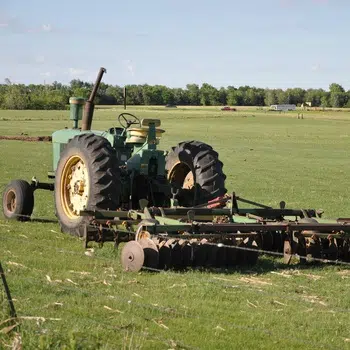MADISON, Wis. – The Wisconsin Department of Agriculture, Trade and Consumer Protection (DATCP) announced a total of $1.5 million has been awarded to nine organizations for the Wisconsin Local Food Purchase Assistance Program (WI LFPA) Community Partners Grants. These grants were awarded through a competitive review process and range from $30,000 to $300,000. This one-time funding, provided by the U.S. Department of Agriculture (USDA) Agricultural Marketing Service, is designed to support the purchase of Wisconsin grown, raised, or minimally processed food and distribute it at no cost to underserved communities in Wisconsin.
The following organizations have been selected for funding:
Feeding America Eastern Wisconsin (Appleton) will coordinate the procurement of foods on behalf of all 11 federally-recognized Tribes in Wisconsin including distribution in Milwaukee County for the Tribal Elder Food Box Program (TEFBP). Each respective Tribe will coordinate its own distribution efforts and will be involved in decision making.
Hunger Task Force, Inc. (Milwaukee) will utilize all grant funds to purchase fresh and minimally processed Wisconsin-produced foods from farmers identified as disadvantaged and underserved. These foods will be distributed, free of charge, to food pantries in 30 of Wisconsin’s most food insecure counties.
Juneau County (Mauston) Departments of Health, Aging and Disability, and Land and Water is partnering with local producers throughout the area to provide sustainable solutions to Wisconsin’s food insecure residents. Food will be distributed through the home delivered meals program, as well as pop-up community events, via micro-Community Sustained Agriculture (CSAs) with other value added items like honey, syrup, and jams.
Community Action Coalition (Madison) (CAC) will use these funds to purchase local commodities for distribution to several of our partner pantries. CAC will distribute foods within their emergency food partner network, while leveraging relationships with area organizations to identify and procure food from eligible producers.
Central Rivers Farmshed (Stevens Point) will use the grant for their Farm, Fresh and Free (FFF) program which provides locally grown produce to hunger relief partners and TEFAP eligible community members. Farmshed will leverage its network of producers to provide support, education on efficient farm operations, market access, grant/loan opportunities, and value-added opportunities.
Wello, Inc (Green Bay) will use funds to support the expansion of the Cultivating Community Healthy Food Access Program, a relationship-based, community-led food distribution system that leverages trusted community spaces to distribute locally-sourced produce to low-income, BIPOC, and socially disadvantaged populations in Northeast Wisconsin.
Stepping Stones (Menominee) will use these funds to support the Farmers Feed Dunn County– Food Diversification Initiative. This initiative focuses on growing the Farmers Feed program by obtaining protein from local producers and increasing/diversifying produce for the pantry, pop-ups, and share-a meal (SAM) bags.
Hmong American Center (Wausau) (HAC) will work with local farmer’s markets to provide food catered to Southeast Asian Community. HAC continues to work with partners to distribute culturally appropriate food benefiting both the Hmong community and local farmers.
SLO Farmers Co-op (Seymour) will expand aggregation and distribution of sustainable, local and organic meat, eggs and ground cherries that are culturally specific for their program recipients.
About the Wisconsin LFPA Program
DATCP has a cooperative agreement with the U.S. Department of Agriculture’s (USDA) Agricultural Marketing Service to create the WI LFPA program.
DATCP is working collaboratively with producers, distributors, food security organizations, and tribal partners to provide program development, coordinate transportation and logistics, and procure food from local producers through a partnership with Marbleseed, Wisconsin Farmers Union, and Wisconsin Food Hub Cooperative. For more information on the WI LFPA program, visit wilocalfood.org.





Comments